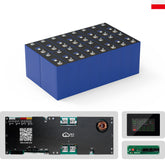How to Find and Buy the Best Group 57 Battery
How to Find and Buy the Best Group 57 Battery
Choosing the right Group 57 battery can significantly impact the performance, reliability, and safety of your vehicle or equipment. Whether you’re replacing an old unit or exploring high-performance options for specialized applications, understanding what makes the best Group 57 battery will save you time, money, and potential headaches. In this in-depth guide, we’ll walk you through everything you need to know—from specifications and features to pricing and where to buy—so you can confidently find and purchase the best Group 57 battery for your needs.
- What Is a Group 57 Battery and Why It Matters
- Group 57 Battery Applications and Use Cases
- Key Factors to Consider When Choosing a Group 57 Battery
- Group 57 Battery Maintenance Tips
- Best Places to Buy a Group 57 Battery
- Comparing Popular Group 57 Battery Models
- How to Interpret Group 57 Battery Labels
- Installing a Group 57 Battery Safely
- Group 57 Battery Troubleshooting Guide
- Environmental Considerations and Recycling
- Group 57 Battery Buying Mistakes to Avoid
- Frequently Asked Questions About Group 57 Batteries
- Future Trends in Group 57 Battery Technology
What Is a Group 57 Battery and Why It Matters
Understanding Battery Group Sizes
A Group 57 battery refers to a specific size and terminal configuration standardized by the Battery Council International (BCI). These batteries are commonly used in older vehicles, industrial equipment, and niche applications.
Key Specs of Group 57 Batteries
- Dimensions: Approximately 10.2” x 6.9” x 8.2” (L x W x H)
- Voltage: Typically 12 volts
- Capacity: Varies from 45Ah to 75Ah
- CCA (Cold Cranking Amps): Usually in the 500–700 range
Choosing a Group 57 battery ensures a perfect fit and compatibility with electrical systems designed for this specific form factor.
Group 57 Battery Applications and Use Cases
Common Vehicle Types
- Classic American sedans and trucks
- Older European and Japanese imports
- Certain marine and RV systems
- Lawn tractors and industrial machinery
Industrial Equipment and Backup Systems
Many backup generators and small industrial machines use Group 57 batteries for their manageable size and reliable power output.
>>See also Why 13 Volts Is Safe for a 12 Volt Battery
Key Factors to Consider When Choosing a Group 57 Battery
Battery Type: Flooded vs. AGM vs. Gel
- Flooded Lead-Acid: Affordable, needs maintenance
- AGM (Absorbed Glass Mat): Maintenance-free, better vibration resistance
- Gel Cell: Excellent in deep-cycle applications, limited CCA
Each battery type impacts performance, so choose the one that aligns with your usage patterns.
Cold Cranking Amps (CCA)
If you live in a cold climate, a Group 57 battery with a high CCA rating is essential for reliable starts in low temperatures.
Reserve Capacity
The reserve capacity determines how long your Group 57 battery can supply power without charging—critical for applications like RVs or boats.
Brand Reputation
Stick to trusted brands like Interstate, Exide, Deka, or ACDelco, known for quality manufacturing and longer warranties.
Group 57 Battery Maintenance Tips
Keep Terminals Clean
Corrosion buildup on the terminals can restrict current flow. Regular cleaning helps your Group 57 battery maintain strong connections.
Check Voltage Regularly
Use a multimeter to monitor voltage. A healthy 12V Group 57 battery should read around 12.6 volts when fully charged.
Storage and Charging
If storing the battery for long periods, keep it in a cool, dry place and recharge it every few weeks to prevent sulfation.
Best Places to Buy a Group 57 Battery
Online Marketplaces
Websites like Amazon, Battery Mart, and Walmart.com offer a wide selection of Group 57 batteries, often with customer reviews, quick delivery, and competitive prices.
Local Auto Parts Stores
Retailers like AutoZone, Advance Auto Parts, and NAPA provide in-store pickup, professional advice, and warranty services.
Specialty Battery Suppliers
For unique configurations or performance-grade Group 57 batteries, specialty suppliers may offer more options than general retailers.
Comparing Popular Group 57 Battery Models
|
Brand |
Type |
CCA |
Reserve Capacity |
Warranty |
|
Interstate |
AGM |
650 |
100 minutes |
36 months |
|
Deka |
Flooded |
550 |
90 minutes |
24 months |
|
ACDelco |
AGM |
700 |
110 minutes |
42 months |
|
Exide |
Gel |
500 |
85 minutes |
36 months |
This table highlights how different Group 57 batteries compare in terms of performance and warranty, helping you choose based on what matters most.
How to Interpret Group 57 Battery Labels
Decoding the Specs
A typical Group 57 battery label may include the following:
- 12V: Standard voltage
- CCA 650: Cold Cranking Amps
- RC 100: Reserve Capacity in minutes
- Date Code: Indicates production month and year
Checking Manufacturing Dates
Always check the date code. A newer Group 57 battery will perform better and last longer, as batteries naturally degrade over time—even in storage.
Installing a Group 57 Battery Safely
Safety Precautions
- Wear gloves and eye protection
- Avoid sparks and flames near the battery
- Disconnect the negative terminal first
Step-by-Step Installation
- Remove the old Group 57 battery
- Clean the tray and terminals
- Insert the new battery and secure it
- Reconnect terminals (positive first)
- Test the system
Proper installation ensures longevity and prevents electrical issues.
Group 57 Battery Troubleshooting Guide
Common Issues and Fixes
- Battery won’t hold charge: Check for parasitic drains or sulfation
- Slow crank: May indicate low CCA or bad alternator
- Corrosion: Clean terminals with baking soda and water
- Battery light on dashboard: Test charging system
If your Group 57 battery continues to fail, consult a mechanic or replace it with a higher-quality unit.
Environmental Considerations and Recycling
Why Battery Recycling Is Important
Lead-acid batteries are hazardous waste. Proper disposal prevents soil and water contamination.
Where to Recycle
Most retailers that sell Group 57 batteries also accept used ones for recycling. You may even receive a small rebate for returning your old unit.
>>See also Comprehensive Guide to AG4 LR626 LR66 177 376 377 SR626 SR626SW Batteries
Group 57 Battery Buying Mistakes to Avoid
Ignoring the CCA Rating
A battery with low CCA may work fine in summer but fail during winter. Always match your CCA requirements to your climate.
Choosing the Wrong Type
Flooded batteries are not ideal for sealed compartments. Use AGM or gel if ventilation is limited.
Overpaying for Features You Don’t Need
Premium models are great, but if you don’t need high reserve capacity or extreme cold-start performance, a mid-range Group 57 battery will do just fine.
Frequently Asked Questions About Group 57 Batteries
Is Group 57 the Same as Group 58?
No. While similar in size, they have different terminal placements and dimensions. Always verify fitment with your vehicle manual.
How Long Does a Group 57 Battery Last?
With proper care, a Group 57 battery can last between 3–6 years depending on usage and climate.
Can I Replace a Group 57 Battery With a Different Size?
Not recommended unless the alternate size matches the electrical and dimensional requirements exactly.
Future Trends in Group 57 Battery Technology
Enhanced AGM Technology
Expect newer Group 57 batteries to offer longer life, better heat tolerance, and faster charging as AGM tech evolves.
Smart Monitoring Systems
Modern vehicles and battery systems are beginning to integrate smart monitors that alert users about battery health and upcoming failure risks.
























Leave a comment
All blog comments are checked prior to publishing